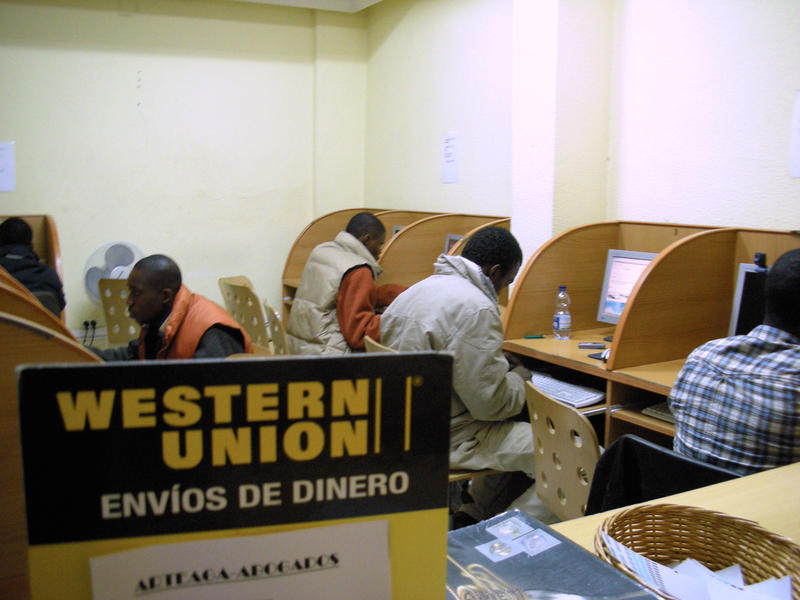The costs of illegal immigration are rising, thanks to U.S. bank regulators


A free daily email with the biggest news stories of the day – and the best features from TheWeek.com
You are now subscribed
Your newsletter sign-up was successful
Republicans complain, convincingly or not, that the Obama administration isn't doing enough to control the northward flow of undocumented immigrants. But regardless of what La Migra is doing, U.S. federal banking regulators are making immigration less attractive and more costly, reports Michael Corkery in The New York Times.
Most immigrants who make the arduous journey to cross the U.S. border illegally don't do it for fun or to binge-watch reality TV — they do it for the money. In the U.S., even a day laborer or hotel cleaner can usually earn enough to buy a car, refrigerator, and other consumer goods, and often more importantly, send money back home to support the family. Immigrants, in the U.S. legally and not, send billions of dollars — $51.1 billion in 2012 — back to their home countries, with almost half of those remittances flowing down to Mexico.
As bank regulators crack down on money transfers abroad to fight money laundering, many banks are responding by getting out of the money-transfer business. Prices are expected to rise, increasing costs for immigrants and decreasing the amount that reaches their families. Corkery explains:
The Week
Escape your echo chamber. Get the facts behind the news, plus analysis from multiple perspectives.

Sign up for The Week's Free Newsletters
From our morning news briefing to a weekly Good News Newsletter, get the best of The Week delivered directly to your inbox.
From our morning news briefing to a weekly Good News Newsletter, get the best of The Week delivered directly to your inbox.
Regulators say the banking system was being exploited by terrorists and drug lords seeking to launder money. While they have not banned banks from engaging in higher-risk businesses like money transfers to certain countries, they acknowledge that banks must now invest significantly more to monitor the money moving through their systems or face substantial penalties.... Even with the current relatively low remittance fees, the costs can still add up. Some Latin American immigrants say they regularly send three remittances a week to pay for last-minute school supplies or rent. [New York Times]
This trend will hurt the immigrants more than the banks, of course. It's not clear how much it's harming terrorists and narcotraffickers.
A free daily email with the biggest news stories of the day – and the best features from TheWeek.com
Peter has worked as a news and culture writer and editor at The Week since the site's launch in 2008. He covers politics, world affairs, religion and cultural currents. His journalism career began as a copy editor at a financial newswire and has included editorial positions at The New York Times Magazine, Facts on File, and Oregon State University.
-
 5 blacked out cartoons about the Epstein file redactions
5 blacked out cartoons about the Epstein file redactionsCartoons Artists take on hidden identities, a censored presidential seal, and more
-
 How Democrats are turning DOJ lemons into partisan lemonade
How Democrats are turning DOJ lemons into partisan lemonadeTODAY’S BIG QUESTION As the Trump administration continues to try — and fail — at indicting its political enemies, Democratic lawmakers have begun seizing the moment for themselves
-
 ICE’s new targets post-Minnesota retreat
ICE’s new targets post-Minnesota retreatIn the Spotlight Several cities are reportedly on ICE’s list for immigration crackdowns
-
 Judge blocks Hegseth from punishing Kelly over video
Judge blocks Hegseth from punishing Kelly over videoSpeed Read Defense Secretary Pete Hegseth pushed for the senator to be demoted over a video in which he reminds military officials they should refuse illegal orders
-
 Trump’s EPA kills legal basis for federal climate policy
Trump’s EPA kills legal basis for federal climate policySpeed Read The government’s authority to regulate several planet-warming pollutants has been repealed
-
 House votes to end Trump’s Canada tariffs
House votes to end Trump’s Canada tariffsSpeed Read Six Republicans joined with Democrats to repeal the president’s tariffs
-
 Bondi, Democrats clash over Epstein in hearing
Bondi, Democrats clash over Epstein in hearingSpeed Read Attorney General Pam Bondi ignored survivors of convicted sex offender Jeffrey Epstein and demanded that Democrats apologize to Trump
-
 El Paso airspace closure tied to FAA-Pentagon standoff
El Paso airspace closure tied to FAA-Pentagon standoffSpeed Read The closure in the Texas border city stemmed from disagreements between the Federal Aviation Administration and Pentagon officials over drone-related tests
-
 Judge blocks Trump suit for Michigan voter rolls
Judge blocks Trump suit for Michigan voter rollsSpeed Read A Trump-appointed federal judge rejected the administration’s demand for voters’ personal data
-
 US to send 200 troops to Nigeria to train army
US to send 200 troops to Nigeria to train armySpeed Read Trump has accused the West African government of failing to protect Christians from terrorist attacks
-
 Grand jury rejects charging 6 Democrats for ‘orders’ video
Grand jury rejects charging 6 Democrats for ‘orders’ videoSpeed Read The jury refused to indict Democratic lawmakers for a video in which they urged military members to resist illegal orders
